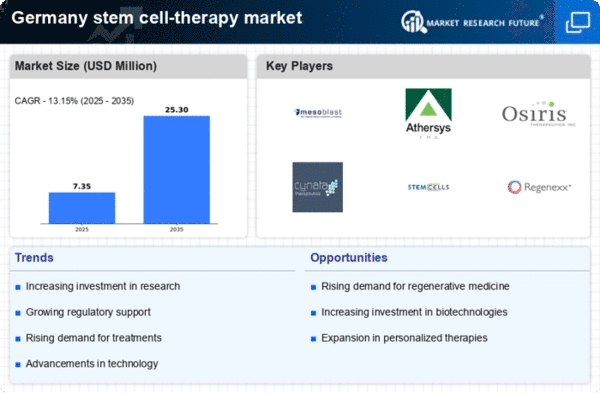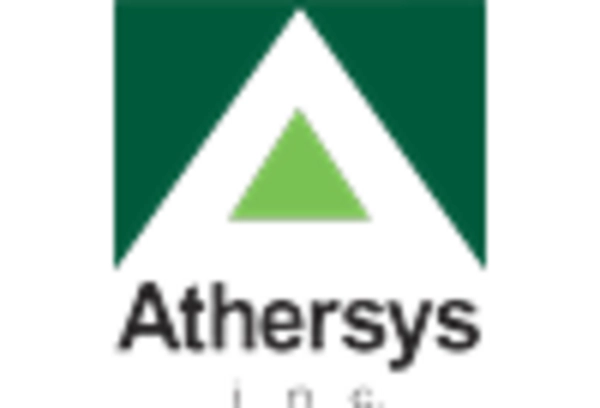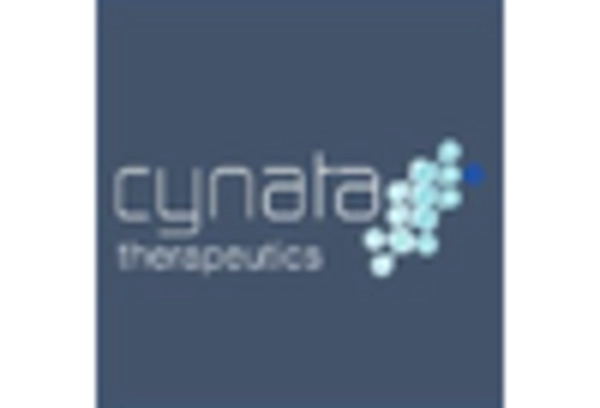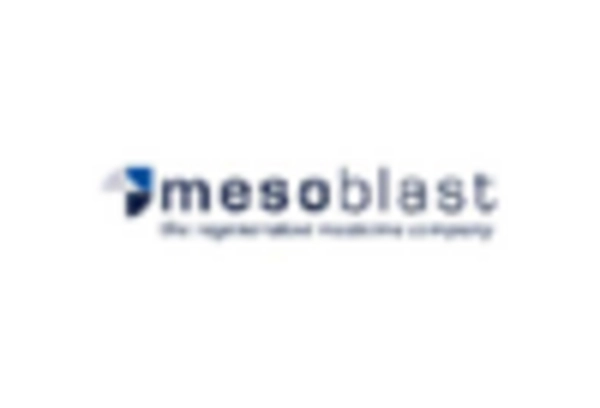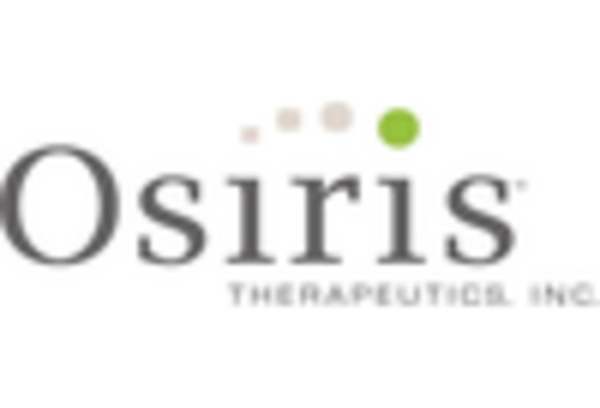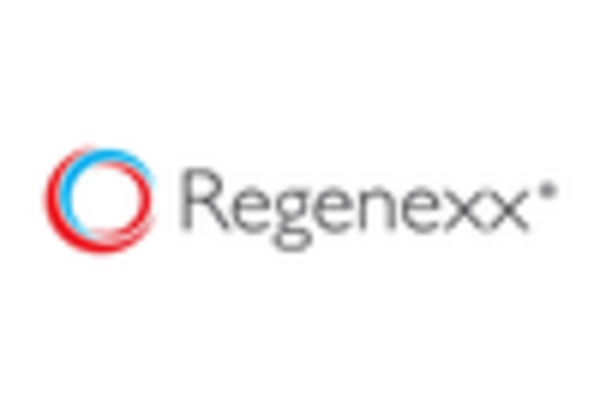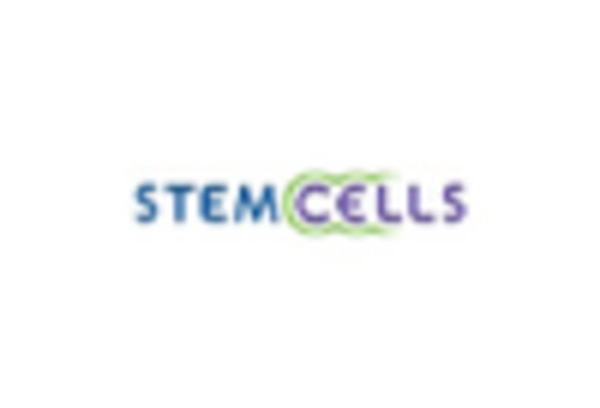Regulatory Framework Enhancements
The regulatory framework surrounding stem cell therapies in Germany is evolving, which is likely to impact the market positively. Recent reforms aim to streamline the approval process for new therapies, making it easier for companies to bring innovative treatments to market. In 2025, the German Medicines Agency is expected to implement new guidelines that could reduce the time for clinical trial approvals by up to 30%. This regulatory support is crucial for fostering innovation and encouraging investment in the stem cell-therapy market. Additionally, clearer regulations may enhance patient safety and confidence in these therapies, leading to increased adoption. As a result, the market is poised for growth, with more therapies likely to receive approval and enter the healthcare system.
Increasing Awareness and Education
Awareness and education regarding stem cell therapies are pivotal in driving the market in Germany. As healthcare professionals and patients become more informed about the potential benefits of stem cell treatments, demand is likely to rise. Educational campaigns and seminars are being organized to disseminate knowledge about the applications and successes of stem cell therapies. In 2025, surveys indicate that approximately 70% of healthcare providers in Germany are actively discussing stem cell options with their patients, which is a notable increase from previous years. This growing awareness is expected to translate into higher patient enrollment in clinical trials and therapies, thereby propelling the stem cell-therapy market forward. Furthermore, as more success stories emerge, public perception is likely to shift positively, further enhancing market growth.
Rising Incidence of Chronic Diseases
The rising incidence of chronic diseases in Germany significantly drives the stem cell-therapy market. Conditions such as diabetes, cardiovascular diseases, and neurodegenerative disorders are on the rise, creating a pressing need for effective treatment options. In 2025, it is estimated that over 30% of the German population will be affected by at least one chronic condition, highlighting the urgent demand for innovative therapies. Stem cell therapies offer potential solutions for regenerating damaged tissues and improving patient quality of life. As healthcare providers seek to address these challenges, the stem cell-therapy market is likely to expand, with more research and development focused on chronic disease applications. This trend suggests a promising future for the market as it aligns with the growing healthcare needs of the population.
Growing Investment in Regenerative Medicine
Investment in regenerative medicine is a key driver for the stem cell-therapy market in Germany. The government, alongside private investors, is increasingly funding research initiatives aimed at developing innovative stem cell therapies. In 2025, funding for regenerative medicine research in Germany is estimated to exceed €500 million, reflecting a robust commitment to advancing this field. This financial support is crucial for fostering collaborations between academic institutions and biotech companies, which can lead to groundbreaking therapies. Moreover, the establishment of specialized research centers dedicated to stem cell research is likely to enhance the capabilities of the industry. As a result, the stem cell-therapy market is expected to expand, with new therapies entering the market and improving patient outcomes.
Technological Advancements in Stem Cell Research
The stem cell-therapy market in Germany is experiencing a surge due to rapid technological advancements in research methodologies. Innovations such as CRISPR gene editing and improved cell culture techniques are enhancing the efficacy of stem cell therapies. These advancements are not only increasing the success rates of treatments but also expanding the range of conditions that can be addressed. For instance, the market is projected to grow at a CAGR of approximately 10% from 2025 to 2030, driven by these technological breakthroughs. Furthermore, the integration of artificial intelligence in research is streamlining the development process, making it more efficient. As a result, the stem cell-therapy market is likely to witness a significant influx of novel therapies, thereby attracting investment and fostering a competitive landscape.


